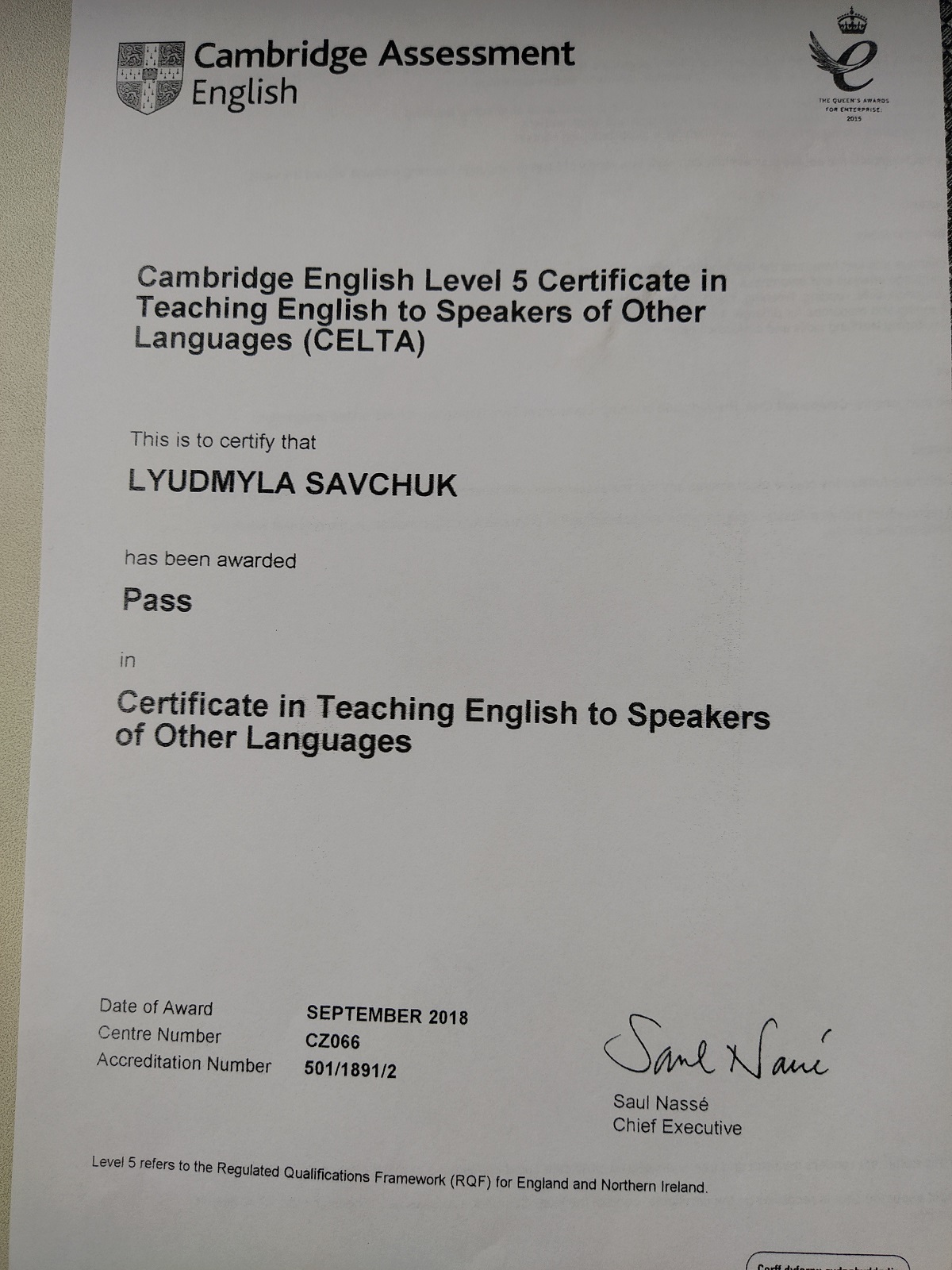Lyudmyla Savchuk has been assessed throughout the course by an external assessor, appointed by Cambridge ESOL. To be awarded the Certificate, she passed both components successfully.

CELTA Certification is accepted throughout the world by organisations which employ English Language teachers. The Cambridge CELTA course has been accredited by the Qualifications and Curriculum Authority (QCA) at level 5 on the National Qualifications Framework. Cambridge ESOL also works with international ELT organisations to ensure the acceptance of CELTA globally.
To be accepted for the CELTA course, applicants must fulfill the following criteria:
A good standard of education (e.g. having gained university entrance qualifications, completed High School). Awareness and high level of competence in written and spoken English in order to be able to follow the course and prepare for teaching a range of levels. For non-native speakers, the required command of English is that of Proficiency (CPE) or C1 within the Common European Framework of Reference (CEFR), i.e. close to native speaker's competence.
Lyudmyla Savchuk has taken CELTA full time (typically 4 weeks) in Prague.

The reason of that was to improve the principles of effective teaching and a range of practical skills for teaching English to adult learners as well as hands-on teaching practice, observe experienced teachers in the classroom and complete four practically focused written assignments. There were five main units of learning:
Unit 1: Learners and teachers and the teaching and learning context.
Unit 2: Language analysis and awareness.
Unit 3: Language skills: reading, listening, speaking and writing.
Unit 4: Planning and resources for different teaching contexts.
Unit 5: Developing teaching skills and professionalism.
There were two components of assessment:
Teaching Practice:
Assessment was based on overall performance at the end of 20 hours of working with classes at two levels of ability.
Written Assignments – was based on the completion four written assignments: one on adult learners and learning contexts; one on an aspect of the language system of English; one on an aspect of language skills; and one on classroom teaching and the identification of action points.